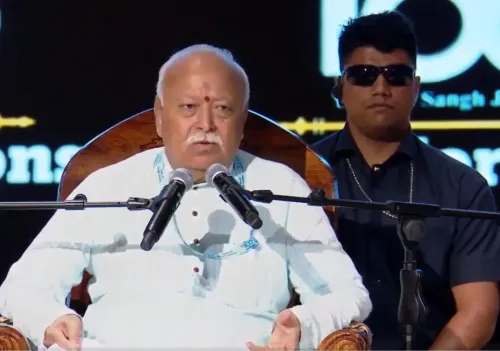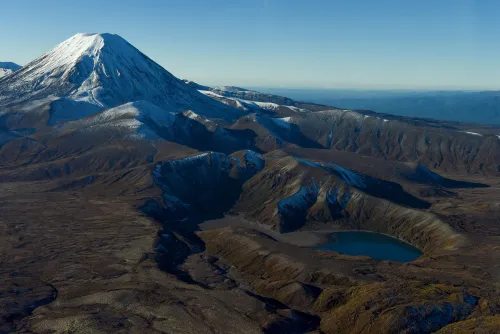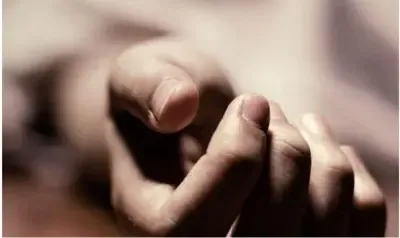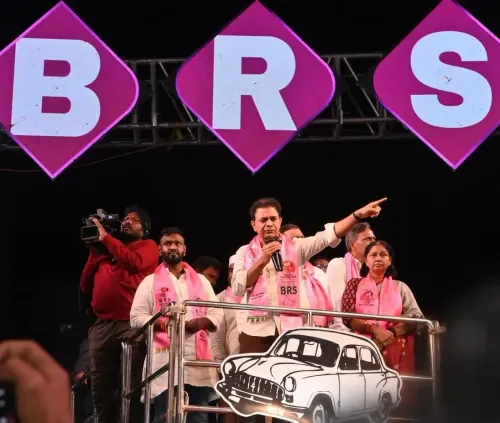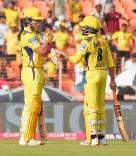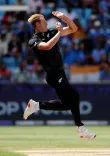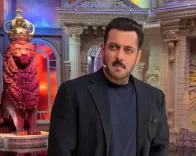Did TN CM Stalin's Visit to His Brother M.K. Alagiri Spark Political Buzz?
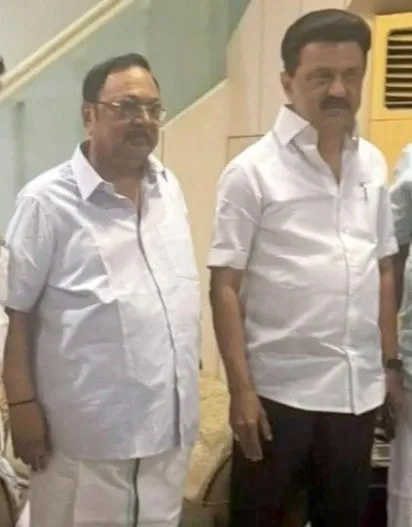
Synopsis
Key Takeaways
- CM M.K. Stalin's visit to M.K. Alagiri marks a significant family reunion.
- This is the first personal meeting in nearly 11 years.
- The visit has sparked political speculation about possible reconciliation.
- Alagiri's supporters showed enthusiasm during the visit.
- This meeting may influence the upcoming elections for the DMK.
Madurai, June 1 (NationPress) In a move that has generated significant excitement within the DMK and the broader political realm of Tamil Nadu, Chief Minister M.K. Stalin visited his elder brother and former Union Minister M.K. Alagiri at his residence in Madurai on Saturday.
This visit, which had been the subject of much speculation and anticipation, is their first known personal meeting in nearly 11 years.
CM Stalin is presently in Madurai to participate in the DMK's general council meeting scheduled for Sunday.
During his stay, the Chief Minister conducted an extensive 20-km roadshow across the city, engaging directly with the public.
Along the route, he received petitions and also unveiled a statue of former Madurai Mayor S. Muthu during the public event.
Yet, the highlight of the day was undoubtedly the Chief Minister's private visit to the residence of his estranged brother—a meeting that has reignited conversations about a potential political reconciliation.
Stalin visited Alagiri without the company of any DMK leaders or family members, a gesture interpreted by many as deeply personal and significant.
The reunion was met with great enthusiasm from Alagiri's supporters, who greeted the Chief Minister with warmth.
Later that evening, CM Stalin enjoyed dinner with Alagiri before returning to the government guest house for the night.
Since assuming office as Chief Minister, CM Stalin's relationship with his elder brother has remained a topic of intense media and public interest.
Alagiri, once a formidable political figure in the DMK's southern stronghold, was marginalized from party matters following a power struggle years ago.
This Saturday's meeting has thus sparked speculation about a possible reconciliation.
When speaking with reporters, one of Alagiri's loyalists expressed optimism, stating, "This meeting signifies unity. The DMK is strong, and we are confident about winning the upcoming elections."
The ramifications of this long-anticipated reunion, both on political and personal fronts, are expected to unfold in the days ahead.
Alagiri, a former Union Minister, once served as the DMK's organizing secretary for the southern districts of Tamil Nadu, with Madurai being his stronghold.
In 2014, DMK leader and Alagiri's father, M. Karunanidhi, expelled him for breaching party discipline.
Since then, Alagiri has kept a low profile, with the exception of a rally he organized in Chennai to honor Karunanidhi's mausoleum following his death in 2018.
Although he initially criticized Stalin after his expulsion from the DMK, Alagiri later praised his leadership and governance following the death of five-time Chief Minister M. Karunanidhi in August 2018.

